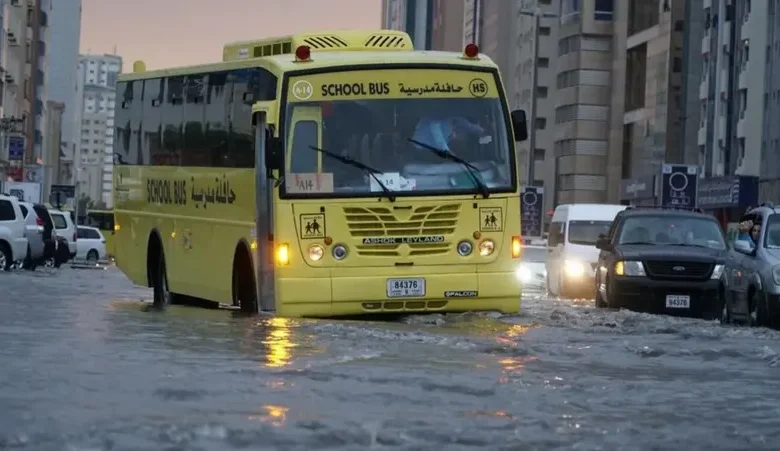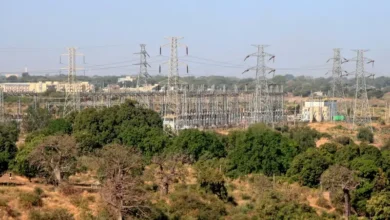Oman, UAE deluge ‘most likely’ due to climate change: Scientists

Global warming “most likely” exacerbated the intense rains that lashed the UAE and Oman last week, causing deaths and widespread flooding, an expert group of scientists said Thursday.
Extreme rainfall in El Nino years has become 10-40 percent heavier in the region affected, a study published by the World Weather Attribution (WWA) group found.
Climate change is the probable reason but cannot be pinpointed “with certainty”, added the study compiled by 21 international researchers.
“Warming, caused by burning fossil fuels, is the most likely explanation for the increasing rainfall,” WWA said in the study.
“There are no other known explanations” for the sharp rise in precipitation, added the international group of scientists that investigates the role of climate change in extreme weather events.
The UAE and Oman are already suffering extreme heat brought on by global warming. But last week’s floods revealed the additional risk of exceptional weather events as the planet heats up.
“The UAE and Oman floods have shown that even dry regions can be strongly affected by precipitation events, a threat that is increasing with increasing global warming due to fossil fuel burning,” said Sonia Seneviratne, a WWA member and professor at Zurich’s ETH university.
Severe disruption
The WWA study analyzed historic weather data and climate models to determine changes in rainfall patterns in the area, including in El Nino years — a recurring pattern when global temperatures rise.
It found extreme rains were significantly less intense in the years before 1.2 degrees Celsius of warming above pre-industrial levels.
“Extreme rainfall events have become at least 10 percent heavier in the UAE and Oman,” said Mariam Zachariah, a WWA member and researcher at London’s Imperial College.
“This finding… agrees with the basic physics that a warmer atmosphere can hold more moisture.”
The storm first landed in Oman on April 14, killing at least 21 people in flash floods and other incidents, according to the official Oman News Agency.
It hit the UAE on April 16, dumping nearly two years’ worth of rain that flooded homes, roads, malls and offices.
Financial hub Dubai faced severe disruption for days with major roads blocked by floods, power outages and some residents trapped in their homes.
Dubai airport, the world’s busiest by international travelers, cancelled 2,155 flights, diverted 115 and did not return to full capacity until Tuesday.
“The situation was unprecedented in its severity but we are a country that learns from every experience,” Prime Minister and Dubai ruler Sheikh Mohammed bin Rashid al-Maktoum said on Wednesday, announcing a $544 million package to repair homes.
‘Transitioning away’
Reports of cloud seeding, the practice of spraying clouds with chemicals to increase rainfall, were denied by UAE officials last week.
The UAE last year hosted the United Nation’s COP28 climate talks, during which nations reached a landmark agreement to “transition away” from fossil fuels.
Both the UAE and Oman are investing in renewable energy and have pledged to decarbonize their domestic economies.










